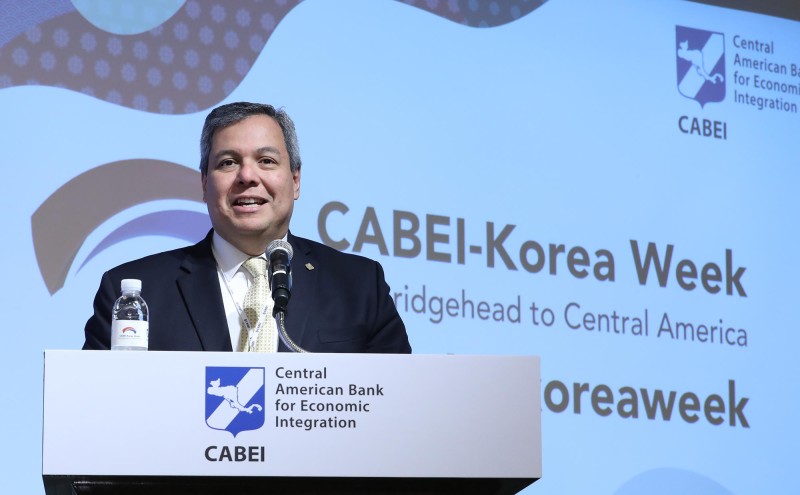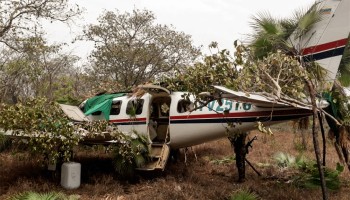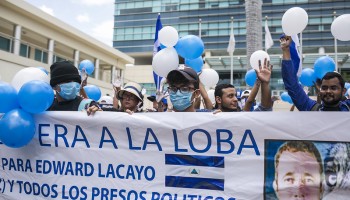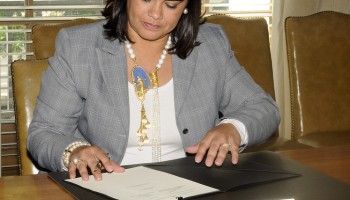Last week, the development bank sued its former president, Dante Mossi, accusing him of launching a “relentless social media campaign,” and making “unsubstantiated allegations of corruption.”
That followed a lawsuit against CABEI by Mossi, who is seeking nearly $2.4 million for reputational damage and lost future wages.
Mossi said CABEI’s legal action was an attempt to divert attention away from his suit, which was filed with the Nicaragua-based Central American Court of Justice. He added that the bank’s attempts to improve its standing have focused on public relations (PR) rather than real transparency.
“The bank’s accountability exercise has been good on the PR side, but totally missing on actual efforts to make information public,” he told OCCRP.
In March, CABEI said it had begun reviewing projects that showed signs of irregularities. They included projects identified by OCCRP and partners in an investigation that showed widespread corruption, and due diligence failures throughout and prior to Mossi’s tenure at the bank.
The lawsuit CABEI filed last Thursday in federal court in Washington, D.C., focuses on some of Mossi’s alleged wrongdoing, according to Anne Champion, a lawyer at Gibson Dunn & Crutcher who is representing the bank.
“The former president engaged in a series of actions that violated the trust placed in him by CABEI,” she said in an email. “These include attempting to interfere with key business relationships and misusing the bank’s resources while employed by the bank as executive president to create personal business opportunities.”
The lawsuit accuses Mossi of using his position at CABEI to help promote a U.S.-based electric-vehicle company, and later doing business with it.
A year before leaving the bank in November 2023, Mossi hosted a CABEI event in Washington where he encouraged investment in the American electric car company, according to the lawsuit against him.
Shortly before leaving CABEI, Mossi “abused his discretion” by making the bank purchase two vehicles from the company “with little apparent business rationale,” the legal complaint says.
The lawsuit says that, while he was still CABEI president, Mossi brokered a deal with a Honduran taxi business to buy electric vehicles from the U.S. company.
Mossi said he formed his own firm in April 2024 –– four months after leaving his post –– and bought vehicles from the American company to send to Honduras. But he told OCCRP there was no overlap between the business deal and his tenure as CABEI’s president.
“That was after I was a private citizen, so I don't know why they mix things,” Mossi said.
Dubbed the “dictators’ bank” by critics, CABEI has been accused of providing billions of dollars in funding for regional governments that rights groups have accused of authoritarianism, including Nicaragua and El Salvador.
Nicaraguan Finance Minister Bruno Gallardo Palaviccine, who also serves as the country’s governor at CABEI, said in an open letter on Friday that he does not support the lawsuit against Mossi.
"This type of action had to be consulted and agreed upon with the Governors and Directors of our countries due to their voting power, and even as an act of courtesy, since it is a lawsuit against the former highest authority of CABEI, who had our full support during his term of office," Palaviccine wrote.






